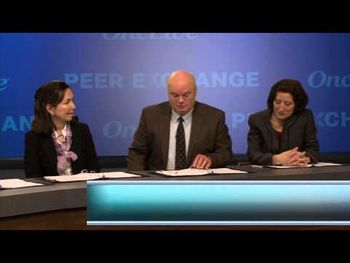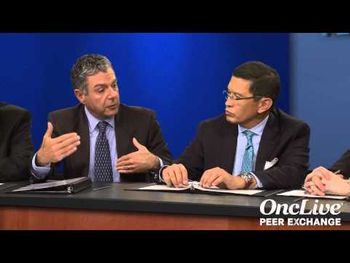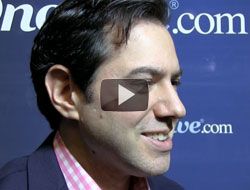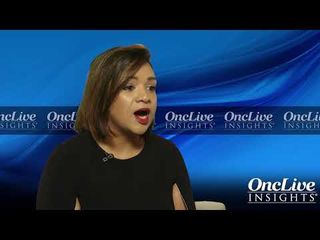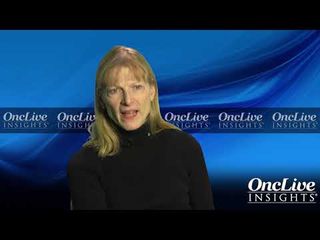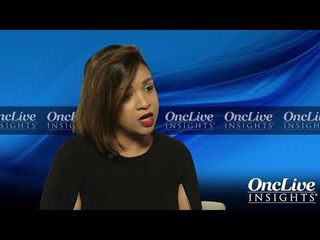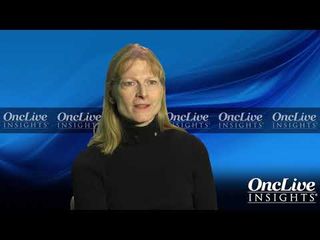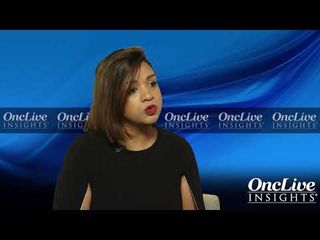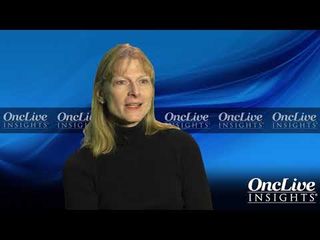
Prostate Cancer
Latest News
Latest Videos

CME Content
More News
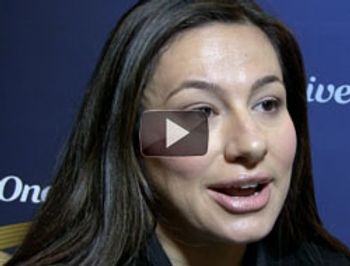
Rana R. McKay, MD, a clinical oncology fellow at Dana-Farber Cancer Institute, Boston, Massachusetts, explains the mechanism of action of dutasteride and its role in a phase II trial in which abiraterone acetate was combined with dutasteride in men with metastatic castration-resistant prostate cancer

During his undergraduate years at Princeton University, Charles L. Sawyers, MD, studied history. Now, well into his career as a physician and translational scientist, Sawyers is busy making it.

Evan Y. Yu, MD, associate professor, Department of Medicine, Division of Oncology, University of Washington School of Medicine, Seattle Cancer Care Alliance, discusses an analysis of optimal testosterone suppression on medical ADT.

Administering chemotherapy concurrently with androgen deprivation therapy (ADT), rather than saving cytotoxic treatment until after progression, improves overall survival for men with hormone-sensitive metastatic prostate cancer
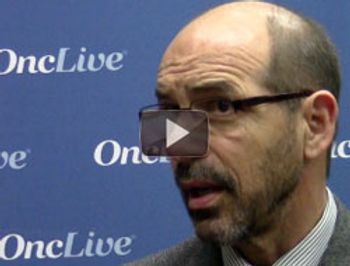
Robert McCormack, PhD, head, Technology Innovation, Janssen Diagnostics, LLC, explains the circulating tumor cell test CellSearch.
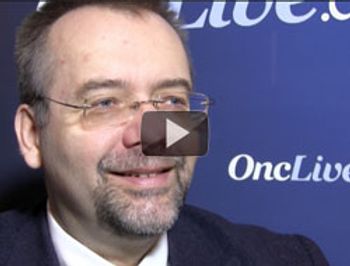
Tomasz Beer, MD, FACP, professor of Medicine, deputy director of the Knight Cancer Institute, Oregon Health and Science University, discusses the treatment of metastatic castration-resistant prostate cancer (mCRPC) with abiraterone and enzalutamide as it relates to results from the PREVAIL study.
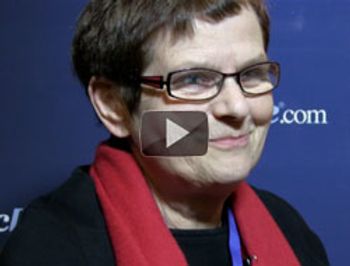
Sophie D. Fosså, MD, PhD, professor, Department of Oncology, Oslo University Hospital, Norway, discusses a trial analyzing the benefit for radiotherapy/antiandrogen combination in men with locally advanced prostate cancer.
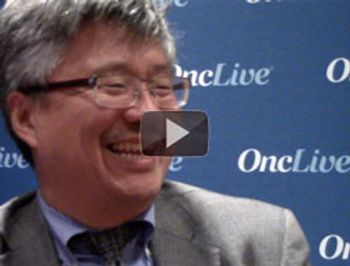
William K. Oh, MD, Chief of the Division of Hematology and Medical Oncology, the Tisch Cancer Institute at Mount Sinai Medical Center, discusses validating a whole-blood RNA prognostic signature in mCRPC.

Prednisone, when used in concert with other therapies for the treatment of metastatic castration-resistant prostate cancer, does not raise the risk for severe toxicities, nor does it affect overall survival.

Patients with metastatic castration-resistant prostate cancer (mCRPC) who have detectable serum androgen levels despite treatment with ketoconazole experience prostate-specific antigen (PSA) response to subsequent abiraterone acetate

Extended follow-up of patients with castration-resistant prostate cancer (CRPC) and bone metastases randomized to radium-223 dichloride (Xofigo) in the phase III ALSYMPCA study revealed a continued low incidence of myelosuppression and no association with secondary malignancies.
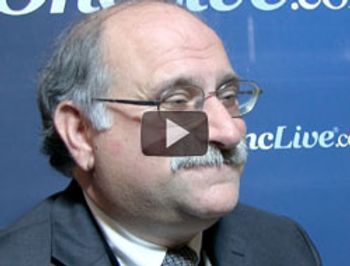
Leonard Gomella, MD, from the Kimmel Cancer Center Network, Thomas Jefferson University Hospital, provides an update on the dendritic cell cancer vaccine sipuleucel-T in castration-resistant prostate cancer.
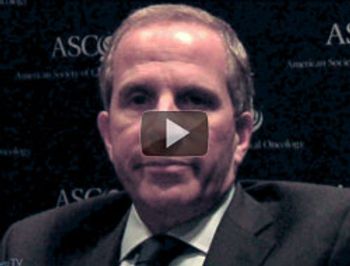
Neal D. Shore, MD, FACS, medical director, Carolina Urologic Research Center, Myrtle Beach, discusses the androgen receptor inhibitor ODM-201, which is used to treat castration-resistant prostate cancer.
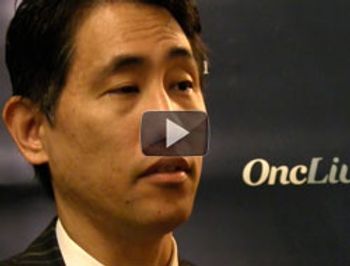
Scott T. Tagawa, MD, assistant professor of medicine, medical director, Genitourinary Oncology Research Program, Weill Cornell Medical College, discusses the results of a study that evaluated the safety of abiraterone acetate combined with docetaxel in patients with metastatic castration-resistant prostate cancer that were presented at the 2014 Genitourinary Cancer Symposium in San Francisco.

An updated analysis, conducted after 11 years of observation, demonstrated continued improved outcomes with the addition of radiotherapy to oral antiandrogen therapy in men with locally advanced prostate cancer.

The androgen-receptor blocker enzalutamide (Xtandi) improves survival by nearly 30% in chemotherapy-naïve men with metastatic castration-resistant prostate cancer (mCRPC) and delays progression of their disease by more than 80%
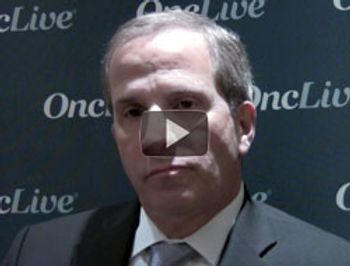
Neal D. Shore, MD, FACS, medical director, Carolina Urologic Research Center, Myrtle Beach, discusses genomic assays in prostate cancer.

So many new agents for the treatment of men with castration-resistant prostate cancer (CRPC) have been introduced in the past several years that optimal sequencing of therapies remains an unsettled question.

Researchers in the Department of Radiation Oncology at the University of North Carolina Hospitals found that almost one-third of low-risk and almost one-half of intermediate-risk prostate cancer patients received a staging bone scan.
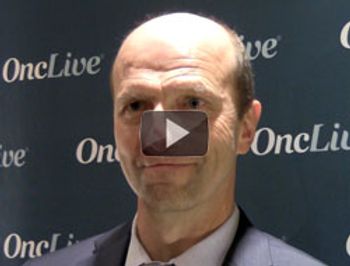
Bryan A. Mehlhaff, MD, from the Oregon Urology Institute, discusses prostate cancer screening guidelines.

Patients who undergo androgen deprivation therapy (ADT) to manage advanced prostate cancer will often face the prospect of a potentially dangerous testosterone surge before the downregulation of leuteinizing hormone (LH) secretion occurs and, within about 3 weeks, testosterone drops to castration-like levels.

Men who experience hot flashes because they are undergoing androgen-deprivation therapy for prostate cancer are not significantly helped by two treatments that alleviate that symptom in menopausal women, the results of a study show.

